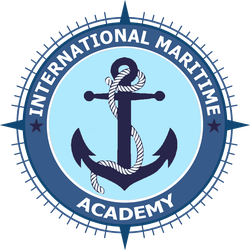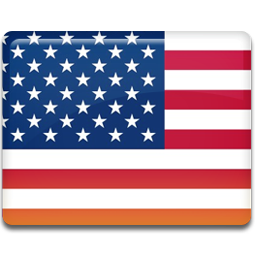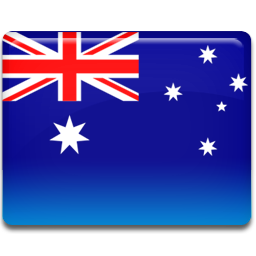Supply Chain
sourcing Management
- Course Program
- Who Should Attend
- Compliance with regulations
- Duration and Teaching Methods
- Course Benefits
- RPL
- Course Content
- Certification
Introduction
International Sourcing emerged initially as a reactive approach designed to reduce production costs and neutralize the threat of foreign competition, today leading-edge firms have shifted the focus of their international sourcing efforts to that of a proactive strategy that pursues sustainable competitive and advantages. The challenge of all purchase specialists and managers is to explore best practices in international sourcing that positively impact a firm’s competitiveness. This USMA certification preparation course focuses on the new tools of sourcing success, including e-commerce, and internet strategies; supply-chain management technology, including eRFx systems, auction sites, and bid optimization; strategic sourcing initiatives; offshore and international sourcing and guidance on supplier relationships and partnerships, opportunities for cost reduction, electronic and paperless management, global sourcing opportunities.
Objectives
Develop your company’s international opportunities and sourcing capacity.
Understanding global sourcing strategies.
Developing appropriate sourcing strategies.
Learn how to critically analyze various global strategies.
Participants understand the impact of sourcing on profitability and provide competitive advantage to the organization.
Explore effective category sourcing strategies and processes in order to balance cost, risk, and value.
Structure relationships with suppliers and prepare negotiations.
Finding the right supplier and effectively execute supplier relationship management for win-win partnerships
Learn how to encourage suppliers early in new product or service development and foster innovation.
Minimum Entry Requirements
There are no prerequisites for this Course, however, in order to fully benefit from the training, it is recommended that the participants are either new entrants to the shipping industry or professional staff in shipping companies, ship brokers, port agencies, insurance inspectors, banks and similar service organisations can gain a valuable understanding of their customers roles and responsibilities.The comprehensive documentation that accompanies the course has been designed as a useful guide for future reference.
Who Should Attend
The Maritime field is extremely broad and brings about relationships with a variety of people with varying levels of experience from the many different aspects of shipping therefore this Course is suitable for a broad range of maritime related professionals and regularly attracts ships’ officers and shore-based management staff.But the course is also valuable to Classification Societies, Marine Insurers, P&I Club Managers, Port Authorities and Coast Guard personnel amongst others.
The course is conducted online and provides a wonderful chance to build your international professional network without having to afford any travel expenses. Often more than 10 nationalities participate and are introduced to each other thanks to our education portal features.
- Producers, Traders or Commodities Brokers and Suppliers
- Ship agent, Shipbrokers
- Shipowners, Charterers, Shippers and Maritime Attorneys
- Purchasers and Technical Managers and Superintendents
- Captains, Chief Engineers and Ship Staff
- Insurance Company Underwriters, claims handlers, and members of the legal profession
- Service providers, Surveyors, Inspectors, Analysts, Technical advisers
- Practicing cargo agents, Freight forwarders, Shipping Industry starters, cargo consolidators
- Other professionals.
Mr. Nnamdi Yaqub - Nigeria-
“Excellent program! Will give you the basic knowledge’s and necessary skills to understand how to achieve your business goals”
Mr. Isaac Leal Pinho - Portugal-
“Great insight to the sourcing manger, good course I studied enough information that could be implemented on practice. Thanks”
Mr. Donald Renner -Australia-
“Material is short and straight to the point. It is also presented in an exciting and easy to follow manner. Good job!!!!!!!!!!! Thank you IISL”.
Course Content
- Moving From Purchasing and Supply Management to Supply Chain Management.
- International Purchasing and Supply Chain Management Trends.
- Key Supply strategies for Tomorrow: Perspectives on the Future of Purchasing and Supply.
- Supply Chain Technology Trends.
- Building the Strategic International Supply Chain Management Organization.
- Summative case providing lessons on strategic supply chain management and planning.
- Strategic Sourcing: Critical Elements & Keys to Success.
- Total Quality Supply Base Management.
- Total Quality Supplier Assurance.
- Supplier Qualification and Selection.
- Part II Solicitations, Bids, Proposals, & Source Selection: Building a Winning Contract.
- Supplier Performance Evaluation—the Report Card.
- Measuring the Process, Internally & Externally.
- Lessons Learned: Ten Ideas for Effective Strategic Sourcing
- Summative case providing lessons on strategic sourcing.
- Supplier Relationship Management (SRM) and Collaborative Value Creation.
- Supplier Relations Development: Providing the Groundwork for Supplier Certification.
- Constructing the Optimal Supplier Relationship Program.
- High Performance Supplier Relationship Strategies.
- Reducing the Supplier Base and Managing Supplier Relationships.
- Summative case providing lessons on supplier relationship management.
- Introduction of the Advanced Cost Management Techniques
- Cost Reduction Strategies
- Value Engineering and Value Analysis
- Summative case providing lessons on advanced cost management techniques.
Duration
Each module is expected to involve 6 hours of learning time each week, making a total of 52 hours per 2 months period and the associated tests might be completed in less than 2 hours.The training sections don’t have to be completed in one session, you may return to it as often as you like, the system will bookmark your last page so you are returned directly to where you exited the program.
Timeframe
This course will remain open for 2 months for completion or revision starting from the date of course uploading on the student portal.One or more extensions of study totaling not more than 2 months may be requested by a student and authorised by the Course Director. The request should be made at least one day prior to the end of the period of study.
Further extensions are used where exceptional circumstances necessitate an extension of the normal period of study in order to complete the final test. An agreed extension may involve the payment of small additional fees.
Teaching Methods
In line with the USMA’s general approach and the best international standards, the course is designed with the aim of providing excellent training with an emphasis on its concrete application in the job, professional and company principal related activities.The training include a course framework (detailing the scope, objective, entry standards, and other information about the course), a course outline (timetable), a detailed teaching syllabus (including the learning objectives that should have been achieved when the course has been completed by students), guidance notes and summary of how the students will be evaluated.
The course involves mainly independent study with the assistance of the educational team; study time, in general, is to be spent on activities such as studying the lecture course material and textbooks and preparing your coursework in order to be ready to take the final test.
Your progress in the subjects taught will be tested and consolidated through exercises related to actual Supply Chain cases.
Modes of attendance
This course can be attended only:Online, via a cutting-edge web platform.
Compliance with regulations
United States Maritime Academy is an accredited training institution by the International Association of Marine Consultants and Surveyors. The USMA methodology and tools are based upon long-term experience in development of training programs and best practices while ensuring compliance with maritime codes, conventions and regulations in the shipping industry.This course is intended to facilitate access to the knowledge and skills demanded by increasingly sophisticated maritime technology, it is also designed to meet the requirements of:
RPL & Skills Recognition
Sometimes an experience is more valuable than a qualification. Thanks to Recognition of Prior Learning or, RPL, now your previous skills, experience and working knowledge can lessen the time it takes you to complete a course and get you working towards your career goals faster. It can be difficult to find the time and effort to fit an entire course into our lives, especially for those already working and juggling other commitments. Despite the convenience of online courses, there can still be an issue with time. This is where Recognition of Prior Learning (RPL) comes into play, where your previous skills, experience or qualifications can shorten the time it takes to undergo a course and allow you to become eligible for qualifications you may not otherwise be able to do. For instance, you can use RPL to claim some but not all credits on a level of the course (for example, to avoid completing a module that covers the knowledge you already have).Sources of RPL
RPL can come from previous study, employment, voluntary work and training courses, including courses and qualifications you didn't complete. RPL is also known as prior learning assessment (PLA) and prior learning assessment and recognition (PLAR).Types of RPL
There are 3 types of RPL you can put towards a qualification:1. Credit transfer
2. Prior certificated learning
3. Prior experiential learning
You can put more than one of these types of RPL towards a qualification.
1. Credit transfer
Credit transfer is when you put credits from a previous higher education qualification towards a new qualification. We can accept credits from qualifications you've completed in the last 10 years.Higher education qualifications include Professional Certificates, Professional Diplomas, Foundation and Bachelor's degrees, HNC and HNDs, and Master's degrees issued after the successful achievement of either web-based distance learning programs or traditional classroom education.
If you started but didn't complete a higher education course or you have a higher education qualification or credits from an educational institution, you may be able to use prior certified learning (see below) instead of credit transfer.
2. Prior certificated learning
Prior certificated learning is a higher level learning that didn't result in a higher education qualification or credits.This can include professional development and employment-based awards, qualifications awarded by professional bodies, non-university higher education, unaccredited institutions of higher education, and university courses you didn't complete.
3. Prior experiential learning
Prior experiential learning relates to knowledge and skills you've gained through previous marine industry experience. For example, through employment or voluntary work.Applying for RPL
The way you apply for RPL depends on the type of RPL you want to put towards your qualification.Before you apply for RPL, you need to have applied for your course or be registered on it. Details of how to apply will be confirmed by the course's RPL advisor.
Applying for credit transfer RPL
To transfer credits from a previous higher education level qualification towards a new qualification, complete this form RPL Application Form and send it to usma@usmacademy.com.Applying for prior certificated learning and prior experiential learning RPL
To convert prior certificated learning and prior experiential learning into credits you can put towards a qualification, you'll need to put together a portfolio of evidence with your application.To do this, complete this form RPL Application Form and send it with your portfolio of evidence to usma@usmacademy.com. We'll put you in touch with your course's RPL advisor. Defence forces training and experience:
Some defence forces training and experience have standard RPL credit ratings and won't need a portfolio of evidence.
Getting a decision
You'll get a decision on your application for RPL within 3 working days of submitting your form.If you don't agree with the decision, you can appeal it by emailing usma@usmacademy.com.
How much does RPL cost?
Applying for RPL is free for all of our courses.
Assessment
This Certificate units are assessed by:- Coursework, dissertations
- Analysis of topical case studies
- Written reports
- Online examination.
- Helping students in course selection and program planning.
- Consulting and advising students on long-term career goals.
- Consulting and supervising online coursework related to subjects we provide training in.
- Helping students with questions through email or over the phone at a convenient time.
- We often provide students with extra eBooks, free study resources, and extra practice sheets.
- Students are encouraged to contact the education support team, who strive to address learning needs creatively and with care while you are completing the course.
- Enhanced workers prospect for career advancement in the shipping industry through a structured progression program and pathway.
- Provide the trained workforce with skills and industry recognised formal qualifications































